Japanese Prime Minister Shinzo Abe on Monday again denied using his influence to secure preferential treatment for the Kake Educational Institution to gain approval for a veterinary school.
With approval ratings hitting new lows, Abe was questioned on the allegations in the upper house of the Japanese parliament.
Speaking to the House of Representatives Budget Committee, he said that his long-time friend Kake had "never once" sought favors.
Abe denied accusations of cronyism after allegations surfaced that he pulled strings to help his friend Kotaro Kake win approval to set up a new veterinary department at a private university in Ehime Prefecture, in Japan's northwestern Shikoku region – the first of its kind in the country in 52 years.
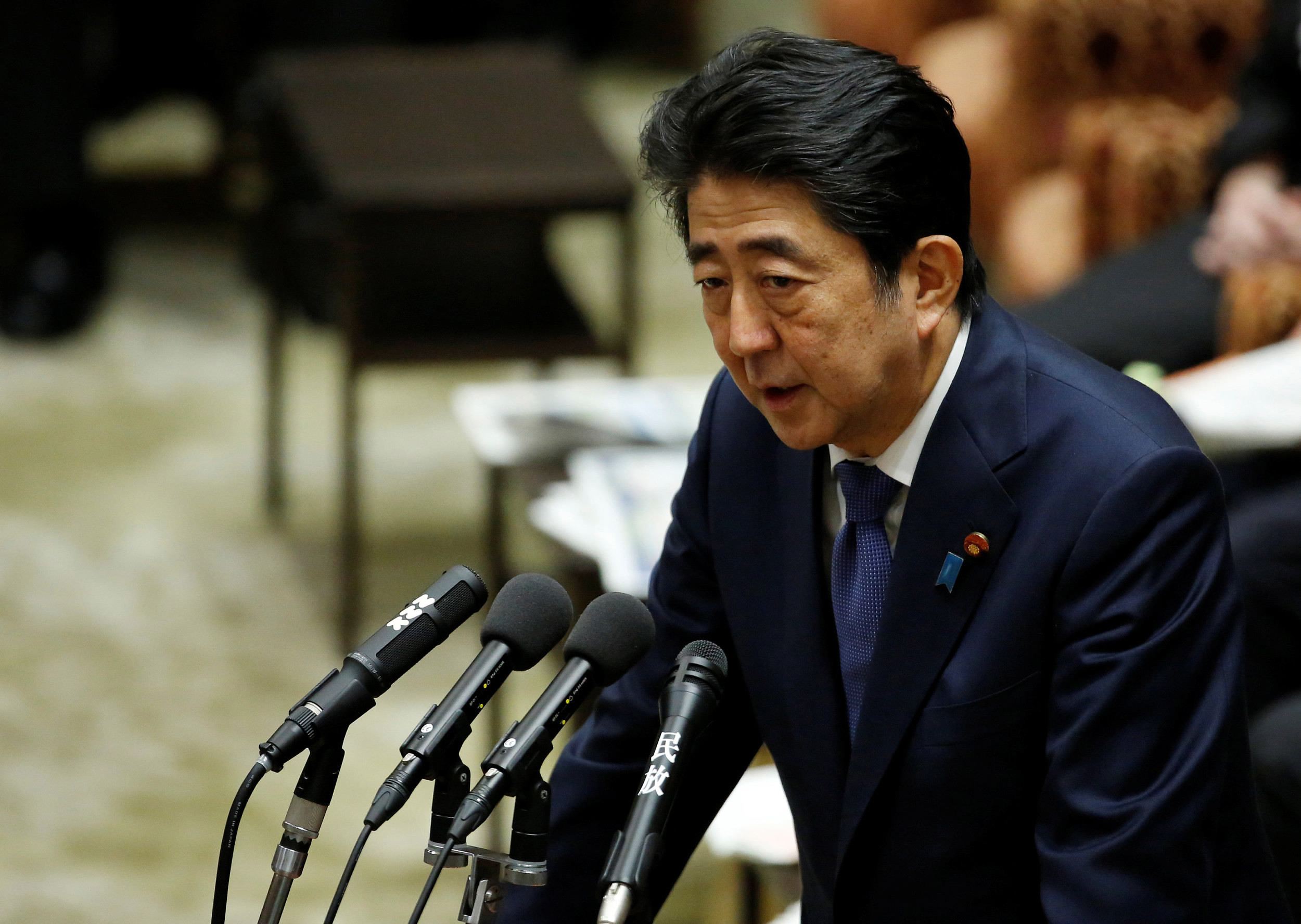
Japanese Prime Minister Shinzo Abe attends a lower house budget committee session at the parliament in Tokyo, Japan on July 24, 2017. /VCG Photo
"There was no request or lobbying regarding the establishment of a new veterinary school," Abe said, adding that he never issued instructions regarding specific cases.
Approval rating sinks
News outlet The Mainichi released an opinion poll on Monday, showing the approval rating of Abe's cabinet had plunged to 26 percent, a 10-point decline from the previous survey and the first time drop into the 20s since he came back to power in December 2012.
Abe's ruling Liberal Democratic Party (LDP) also recently lost two major elections, including the Tokyo Metropolitan Assembly Election earlier this month and a defeat in the Sendai mayoral election to an opposition-backed former lawmaker on Sunday, a warning to the future of ruling party amid tumbling public support.
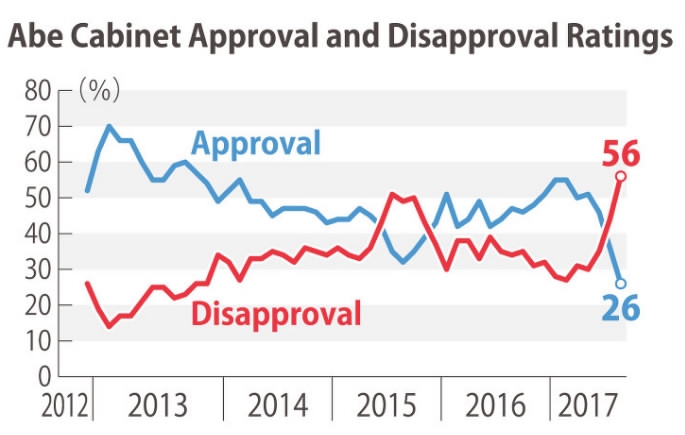
A screenshot from the mainichi.jp.
During the questioning session, Abe also defended his Defense Minister Tomomi Inada over claims he had allowed officials to conceal logs containing the activities of Japanese troops in what potentially could have been a controversial UN peacekeeping mission in South Sudan.
Abe refused requests to dismiss Inada, a close ally, saying he believed the defense minister would carry out a thorough probe over the issue.
Pessimistic future
The plunging approval rating has led to members of Abe's ruling coalition to be pessimistic about the ratings ever picking up.
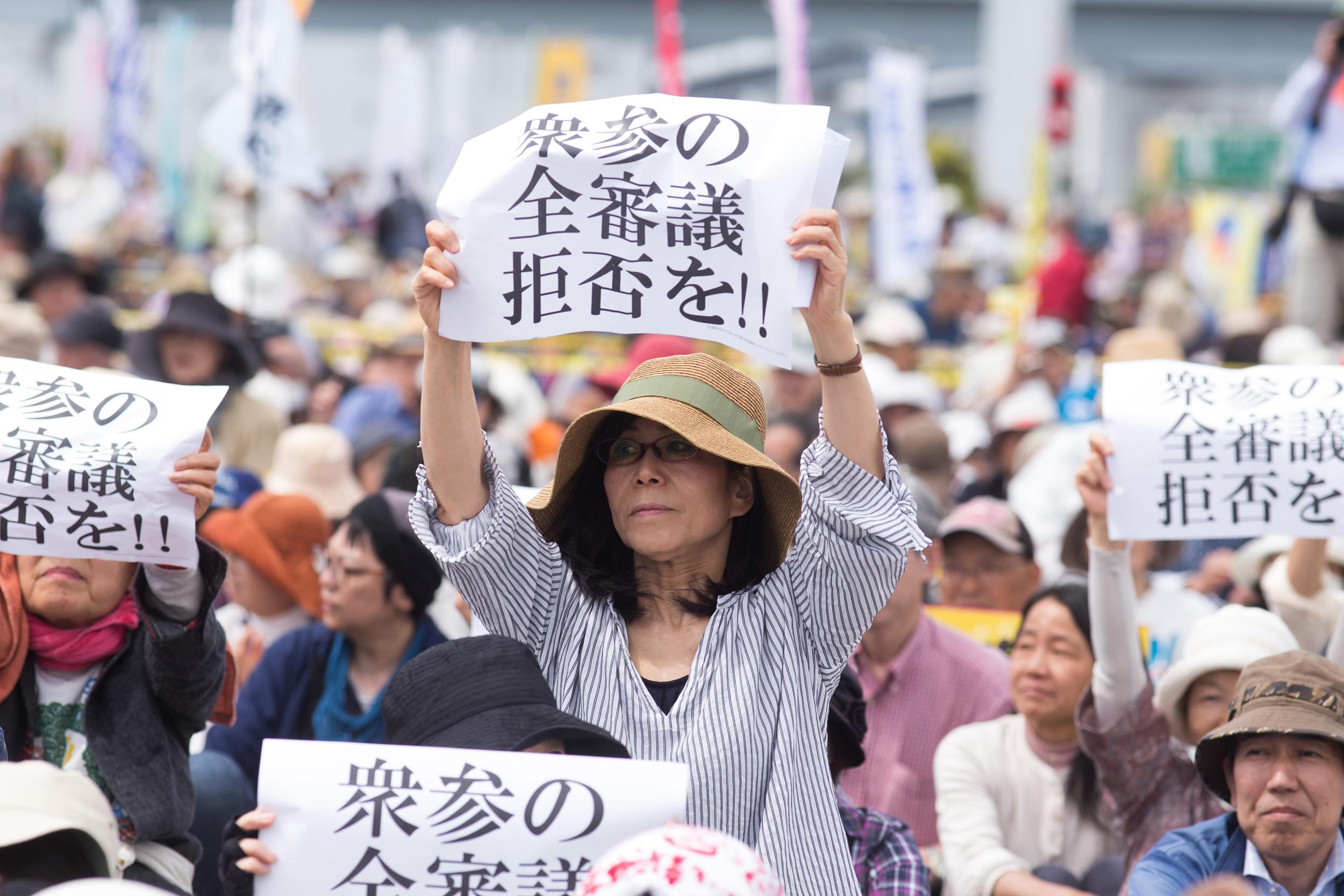
Thousands rally for protecting the peaceful 'article 9' Constitution of Japan which forbids war on May 3, 2017. /VCG Photo
The Mainichi quoted an LDP lawmaker as saying, "There is growing public criticism against the prime minister. No one would listen to us even if we try to appeal to voters for support of our economic stimulus measures."
In August, Abe aimed to reshuffle the Cabinet and the ruling LPD's executives in a bid to recover momentum, while Japanese media said with the support rate plunging to a critical level, it will blur the future of the administration.
Abe's plans for constitutional reform continue to cause ripples of skepticism in the country with 66 percent of people polled saying the debate over the country's pacifist constitution does not have to be rushed.
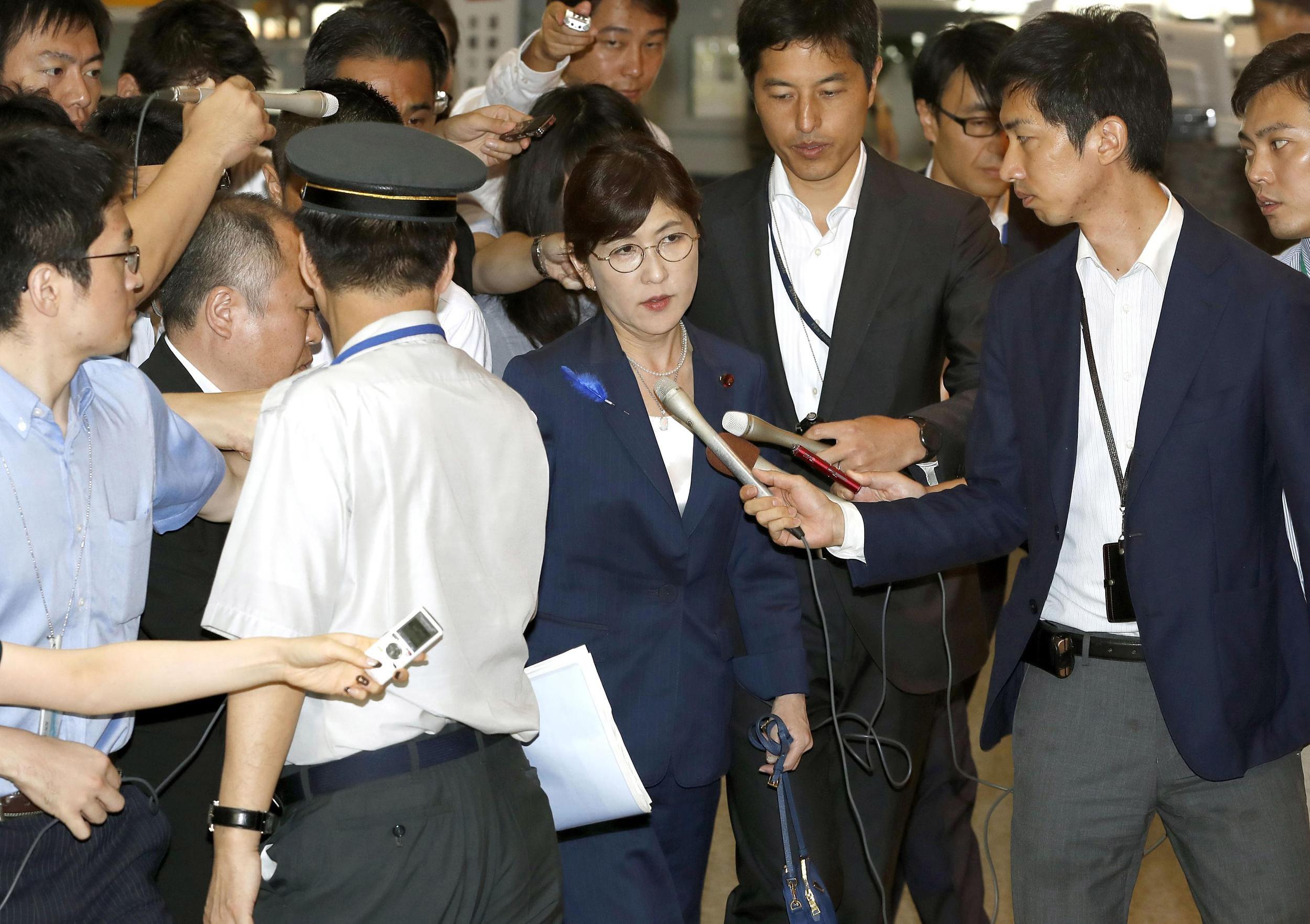
Japanese Defense Minister Tomomi Inada is surrounded by reporters upon her arrival at the ministry in Tokyo on July 20, 2017. /VCG Photo
Abe and his ruling coalition intend to submit proposals for constitutional amendments in the coming fall, with the goal of recognizing the country's self-defense forces as a military and clarifying Japan's right to defend itself.
Now the proposal looks unsure, as the LDP's Constitutional Reform Promotion Headquarters chief Okiharu Yasuoka said, "The government wouldn't be viable without public confidence. It is essential to have thorough discussions."
As the public backlash against the administration remains strong, other opposition party has called for dissolving the lower chamber for a snap general election.
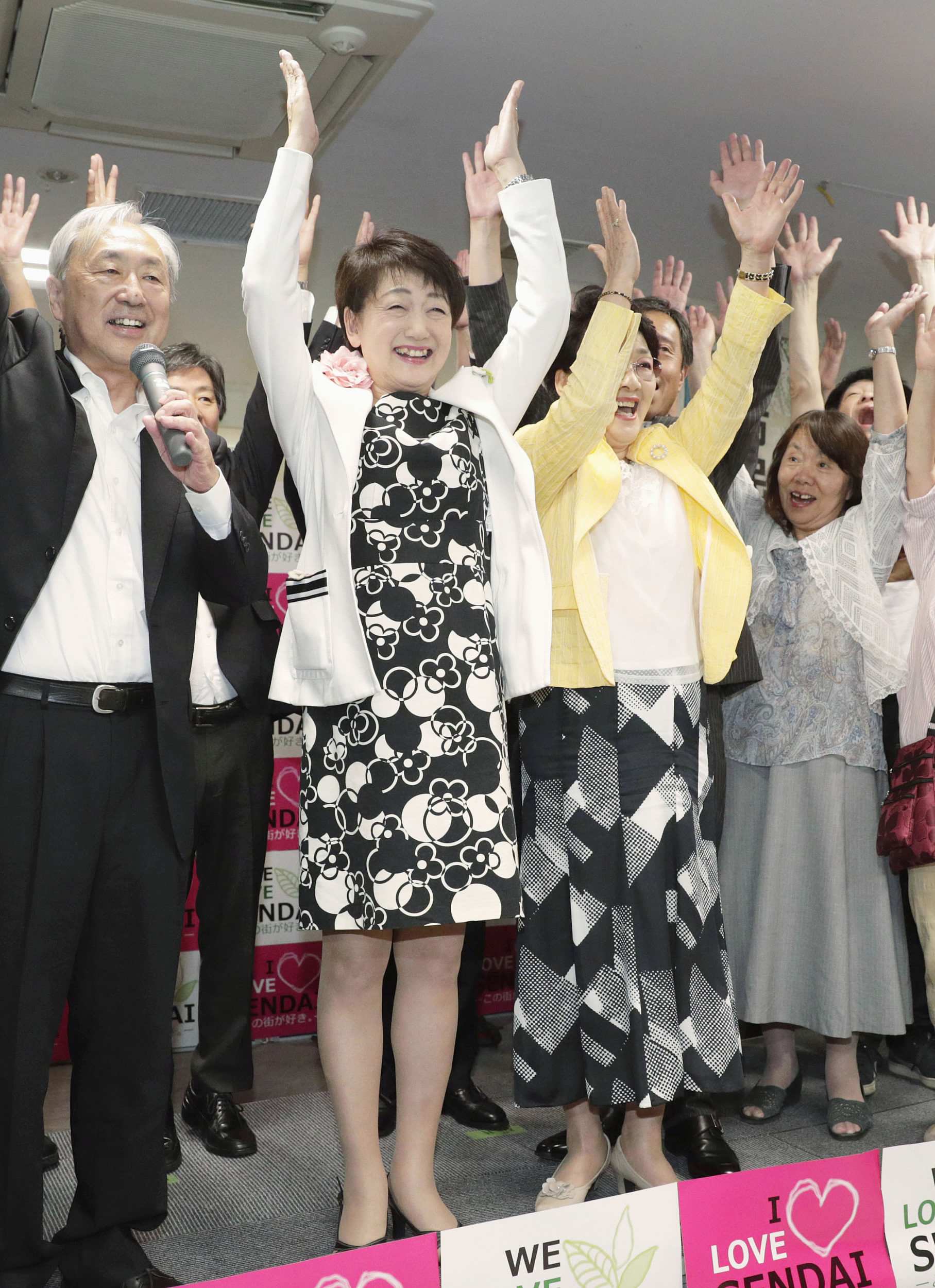
Kazuko Kori (2nd from L), an opposition-backed former lawmaker, celebrates as she won the mayoral election of Sendai, northeastern Japan, on July 23, 2017. Prime Minister Shinzo Abe's ruling Liberal Democratic Party suffered the second straight defeat in major local elections. /VCG Photo
In the same poll, 62 percent of respondents said Abe should be replaced as president of the ruling Liberal Democratic Party (LDP) when his term expires.
Abe had hoped to become the longest-serving prime minister when his tenure ends in September next year, yet the high-profile scandals and poor election results have obviously cast doubt on his prospects of constitutional amendments and winning a third three-year term.
Related stories:










